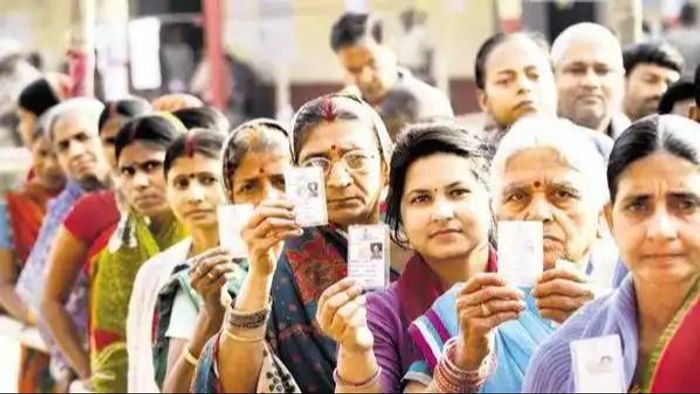Association for Democratic Reforms questions notion of 'one Nation, One Election'
The Association for Democratic Reforms, an electoral reform advocacy group, has raised questions on the notion of 'One Nation, One Election'.

- Jan 15, 2024,
- Updated Jan 15, 2024, 8:47 PM IST
The Association for Democratic Reforms, an electoral reform advocacy group, has raised questions on the notion of 'One Nation, One Election'.
In a press release, the ADR has questioned the notion of 'One Nation, One Election' which has been backed by the Niti Aayog and the parliamentary committee for various reasons.
The ADR, on its part, has said that the notion of 'One Nation, One Election' is misleading as it tends to ignore the level of local body elections.
"The slogan 'One nation, One election' is misleading because while the discussion is initiated with a stated intention to hold simultaneous elections to all three tiers of governance, the Union, the States, and the Local Bodies, the last tier of Local Bodies is invariably dropped from the discourse. Here it is important to ask: What exactly are simultaneous elections? And what legislative bodies do they include?" said the ADR.
The ADR has also stated that if simultaneous elections are held then there is a tendency among voters to vote for the same party in both the legislatures.
"Another substantial issue is voter behaviour in the case of simultaneous elections. When elections to the Lok Sabha and State Assembly are held at the same time, there is a strong tendency for voters to vote for the same political party for both legislatures," said the poll watchdog.
The ADR also stated that the cost of holding simultaneous elections in the country will face several logistical challenges.
"There are logistical challenges in holding simultaneous elections. As per one estimate, the EC will require around 30 lakh EVMs and a preparation time of nearly one-and-half years for smooth conduct of simultaneous elections to the Lok Sabha and State elections. The Commission will require 30 lakh control units, about 43 lakh ballot units and about 32 lakh VVPATs for the simultaneous polls, taking into consideration the reserve units kept for replacement in case of any malfunction or damage. Additionally, the security forces required to be posted to ensure smooth simultaneous polls will also be humongous," said the ADR.
The poll watchdog also raised the point that simultaneous elections can lead to a change in the federal structure of the country into a unitary one.
"There are serious apprehensions that the advocacy of simultaneous elections is a sleight of hand aimed at changing the 'federal' character of the Constitution to a 'unitary' structure. The apprehensions arise from the fact that the justifications held out so far, such as lowering of expenses on elections, and improved governance, are found untenable on a deeper examination," it was stated in the press release.
The ADR also said that simultaneous elections can lead to focus away from local issues to national issues. It was also stated that they affect the electoral behavior of voters by a substantial margin as per some studies.
It was also pointed out that simultaneous elections to Lok Sabha and State Assemblies are not possible without significant amendments to the Constitution, which may not be such an easy task to pass in the parliament.
The ADR, in a concluding note, stated that the focus should be to conserve national resources which are being exhausted on discussing the viability of simultaneous elections.
"The optimal course of action, to conserve precious national resources that are currently being expended on multiple discussions on holding simultaneous elections, is to give up this attempt, and focus on real issues facing the nation and its people," said the ADR.